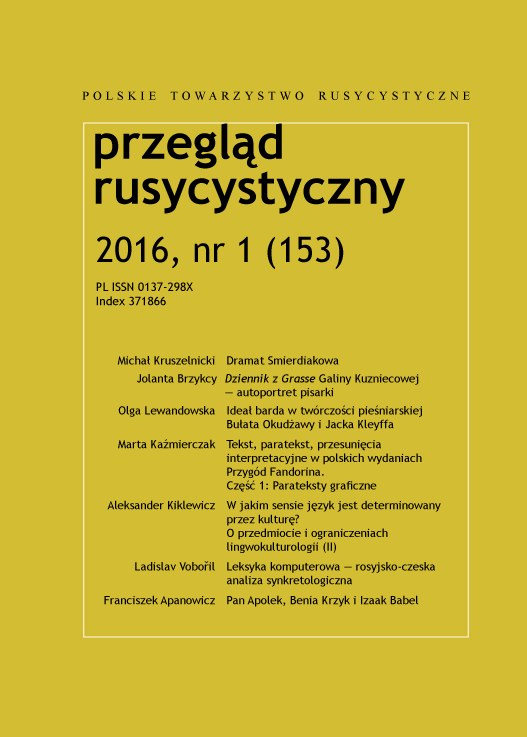Лексинка компьютерной речи: синкретологический анализ (в сопоставлении руского и чешского языков)
Computer slang — Russian–Czech sincretologic analysis
Author(s): Ladislav VobořilSubject(s): Language studies, Language and Literature Studies, Theoretical Linguistics, Comparative Linguistics, Western Slavic Languages, Eastern Slavic Languages
Published by: Polskie Towarzystwo Rusycytyczne
Keywords: computer slang;jargon analysis;Russian-Czech comparative linguistics;sincretologic analysis
Summary/Abstract: The paper deals with syncretic features of computer non-literary (jargon/slang) words which are the object of research presented. The subject is syncretic features of this group of lexis. The term of syncretism describes some non-discrete phenomena or merging, fusion or union of diverse and contradictory elements. Syncretism at the lexical level means formal and semantic asymmetry when one sign can have two or more meanings or one meaning can be expressed in two or more differentsings. Syncretism as a lexical-semantic category is understood as accumulation of two/multiple denotations and significations at the same time. Syncretism comprises such phenomena as metaphor, metonymy, symbolic words, connotative lexis, hyperonyms, phraseology.
Journal: Przegląd Rusycystyczny
- Issue Year: 2016
- Issue No: 153
- Page Range: 110-123
- Page Count: 14
- Language: Russian

